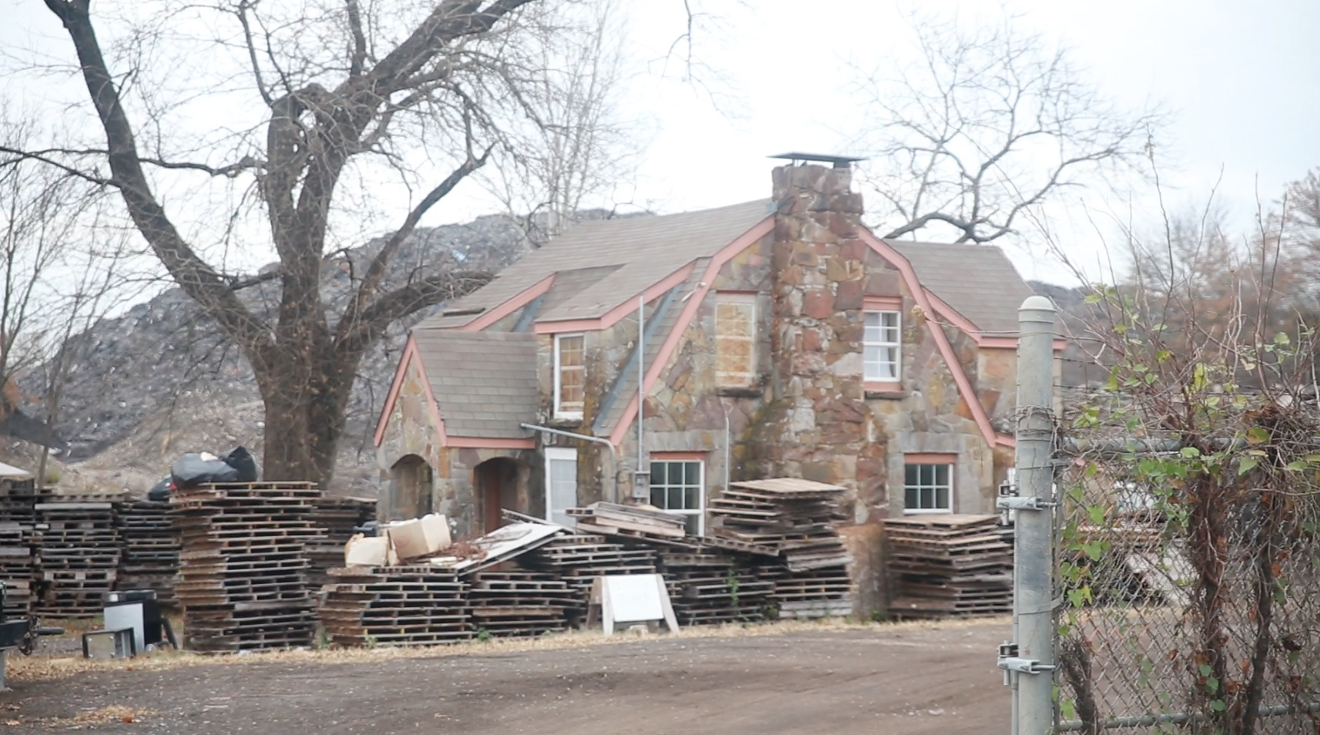The giant was born in early 2018. Chris Ganter and his Blue Star Recycling bought the land for a place to grind and pile discarded shingles. They told Jackson and other nearby residents they’d be the perfect neighbors, but it wasn’t long before the mountain began to swell just 50 feet away from Jackson’s house.
Dust from the shingles would often blow through the air, getting into residents' lung. In early 2019, Jackson and other residents reportedly began coughing up black phlegm.
As Dallas works to move the mountain and get through its lawsuit with Jackson, neighborhood residents are trying to ensure that another environmental disaster doesn’t end up right outside their windows. But, they say the city isn’t listening to them.
"We just want our community to be green again, so we can enjoy our animals, our pets and be able to grow us and feel what it’s like to have a garden," Jackson said. Jackson is also the president of Southern Sector Rising, a nonprofit that deals with systemic racism in Dallas’ zoning practice.
There were gaps in city of Dallas zoning changes made throughout the ’80s, which were intended to protect people from hazardous industrial uses. But the measures left out and damaged majority non-white neighborhoods. As a result, land next to these residential areas became industrialized.
The effects of those decisions are visible in Floral Farms, gazing to the top of the poisonous mountain of shingles or standing along the neighborhood roads as 18 wheelers use them as thoroughfares. The trucks often block and congest Bermuda Road as they enter the side gate of a property that faces South Central Expressway. The road previously did not allow truck traffic.
Residents who live on Bird Lane in Floral Farms have complained about debris and other materials washing off nearby industrial lots onto their land. When it rains, the infill next to residential land on Rhodes Lane also causes flooding.
Additionally, the neighborhood is always fighting off future nuisances that would come along with proposed industrial developments. For example, they only recently found out someone applied to turn a 100-acre undeveloped forested area in the community into a concrete crushing and industrial infill site.
Instead of keeping up the fight against these developments till the end of time, the neighborhood put together a plan for the future of their community regarding land use, zoning and vision. They want to bring parks to the area, connect the trails and have positive economic development, like community retail. The site of Shingle Mountain, for example, will become park space, according to the plan. Jackson said they also want a recreation center and a place for the children to play. Their main goal now is to get the city onboard.
Evelyn Mayo, the chair of the board of Downwinders at Risk, a local grassroots environmental group, has fought alongside Jackson these last few years. She was working in Joppa, another underserved community in southern Dallas, fending off two concrete batch plants when she heard about shingle mountain. She said Jackson's story is not an uncommon one.
The biggest obstacle in fixing things like Shingle Mountain is finding city officials with the will to change things. She doesn't feel there's much political will to make the neighborhood plan happen.
On Jan. 26, a special environment and sustainability meeting was held. The event was meant to update residents about the clean-up efforts at Shingle Mountain, and city staff said the site will be made available for Dallas to acquire for free. Mayo said the city is looking for input from the community, which already knows what it wants, but they’re not being very receptive.
“[The community] is like, ‘We have all these great ideas. We’ve tried to put them in front of you, but we haven’t gotten any traction on y’all’s end,’” Mayo said. “It’s kind of that same pattern that we’ve seen before of not being listened to.”
Additionally, Mayo said there’s nothing official on the books to receive this input.
She said: “There’s no formal process that they’ve laid out, which, again, is another red flag, because there’s a neighborhood association here that’s organized, and is on the city’s neighborhood map. So, it’s not like they’re hard to find and there’s been no word from the city yet.”
Jackson said she feels that the city is resisting the neighborhood plan because of her involvement. "It seems like every time we do something in our little community, I guess because I raised the issue about my family’s health and my community's health, it seems like now everything we do, they just throw it back or knock it back down," she said. "There’s no support here."
In an op-ed for Visible Magazine, Cecilia Garcia, another Floral Farms resident, said that Shingle Mountain is what happens when city officials don't listen to the communities they serve. "We hope the city listens now to right this wrong," she wrote.












